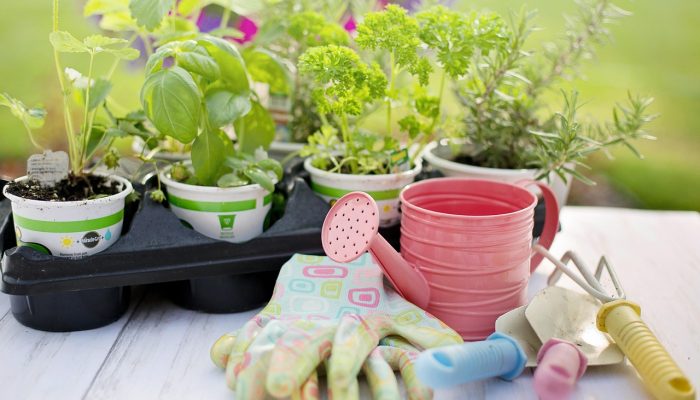Introduction
Effective communication between parents and teenagers is an ongoing challenge, particularly in a modern context shaped by emotional complexity, social pressure, and digital saturation. Adolescence is a time of rapid internal development, physiological, psychological, and emotional. During this period, communication can falter or even break down altogether, leaving both teens and their parents feeling frustrated, misunderstood, and isolated.
Homeopathy offers a distinctive and often transformative approach to improving this dynamic. By recognising emotional states as meaningful expressions of imbalance and working gently to restore equilibrium homeopathic remedies can support not only the adolescent but also the communication pathways that bind families together.

Adolescence: Between Vulnerability and Defensiveness
Adolescents often oscillate between emotional withdrawal and heightened reactivity. Their behaviour can be confusing to adults at times combative, at others despondent or evasive. These are not simply personality traits but can be indicators of deeper emotional unrest, often linked to hormonal changes, social stress, identity formation, and neurological development.
Homeopathy recognises such states as expressions of disharmony within the whole person. Behaviour that may appear obstructive or irrational often holds clues to what the teen is experiencing internally. Once this is understood within a remedy framework, it becomes possible to offer support that helps the young person feel more emotionally regulated and, as a result, more communicative and connected.
Common Homeopathic Patterns in Teenagers
A well-selected homeopathic remedy can help restore balance, ease internal tension, and facilitate more authentic interaction. Several remedy approaches are particularly relevant during adolescence and may correspond with specific communication challenges.
1. Natrum muriaticum
This remedy often corresponds with teenagers who become distant, guarded, or emotionally reserved. They may internalise grief or rejection, presenting a cool exterior that masks intense inner sensitivity. Communication with a Nat mur adolescent often improves once the emotional dam has been gently released through remedy support.
2. Pulsatilla
More openly emotional and often eager to please, Pulsatilla teenagers may still struggle with dependency, peer influence, and feelings of vulnerability. They are often affected by changes in social relationships and may exhibit inconsistent moods. This remedy helps stabilise emotional tone and promotes self-assured communication.
3. Sulphur
Confident, questioning, and sometimes provocative, Sulphur types may clash with authority figures and resist parental input. When communication becomes combative or ego-driven, this remedy can encourage introspection and balance, reducing conflict and enhancing mutual respect.
4. Ignatia
Adolescents in an Ignatia state often present with mood swings, emotional contradictions, and signs of suppressed grief or disappointment. This remedy supports the resolution of inner tension, allowing for clearer, less reactive dialogue.
5. Lachesis
This remedy may apply when teens express jealousy, competitiveness, or a tendency to dominate conversations. They may be sharp-tongued or defensive. Lachesis can soften communication and promote more cooperative engagement.s or repetitive strain injuries from long travel days. Combine with Arnica or Rhus tox as needed.
Communication Breakdown: The Unhappy Parent and the Unhappy Teenager
When both teenager and parent feel unheard or misunderstood, communication can become strained or hostile. Arguments may become cyclical, or worse, silence may replace dialogue altogether. This breakdown often results in polarised positions: the parent experiences the teen as ungrateful or withdrawn, while the teenager feels micromanaged or invalidated.
When a well-matched remedy is given, shifts in emotional resilience and openness often follow, on both sides.
The Digital Age and the Erosion of Dialogue
Modern teenagers live in a highly stimulating, hyper-connected world. Social media, online gaming, and algorithm-driven entertainment often replace face-to-face interaction. While these technologies can offer community and creativity, they also contribute to distraction, emotional dysregulation, and shallow communication patterns.

Parents frequently report feeling shut out, unable to compete with screens for attention. Teenagers, in turn, may feel overwhelmed or misread, retreating further into their devices. In this environment, traditional forms of communication can deteriorate rapidly.
Homeopathy does not seek to eliminate these influences but can help teenagers build inner clarity and emotional strength. When internal overstimulation is calmed, and self-awareness is enhanced, teens are often better able to self-regulate and to re-engage with real-world relationships, including those with their parents.
Remedies such as Cocculus (for mental fatigue), Gelsemium (for performance anxiety), or Phosphoric acid (for emotional exhaustion) may also prove helpful when digital overload or social media stress contributes to a teenager’s communication issues.
Supporting the Family System Holistically
Homeopathy’s value lies not only in treating the adolescent but in supporting the broader family system. Emotional states are rarely contained within one individual. A parent who is overworked, anxious or emotionally depleted may unconsciously reinforce the very behaviours they seek to resolve in their child.
It can be transformative to assess and support both the teenager and the parent, even when the initial focus is the adolescent. Remedies such as Carcinosin (for overly self-sacrificing parents), Nux vomica (for irritable or overwhelmed states), or Sepia (for emotional detachment due to burnout) can be invaluable in restoring emotional resilience.
When family members begin to feel stronger, more balanced, and less reactive, communication naturally improves. This process may be subtle but often profound, unfolding not through dramatic breakthroughs but through quiet shifts in tone, patience, and understanding.

Practical Strategies to Complement Homeopathy
While remedy support is central, certain strategies can complement the homeopathic approach to communication with teenagers:
- Allow emotional expression without immediately correcting or judging
- Use open, curious questions rather than interrogations
- Create tech-free times or zones in the home to encourage presence
- Model vulnerability and self-awareness, rather than authority alone
- Validate their emotional experience, even when setting firm boundaries
A teenager who feels respected (even when limits are in place) is more likely to respond openly. Homeopathy supports this by fostering internal safety and coherence, making communication less reactive and more relational.
Conclusion: Encouraging Connection, Not Control
Teenagers are navigating one of the most complex phases of human development. Their behaviour, though often challenging, is rarely arbitrary. Homeopathy recognises this and offers a non-invasive, deeply respectful method of support.
By identifying core emotional patterns and applying well-matched remedies, homeopathy helps teenagers feel more at ease within themselves. In turn, this often reopens lines of communication with parents and carers not through coercion, but through increased emotional availability and trust.
At a time when digital distractions, social pressures, and emotional stress are at an all-time high, the quiet, individualised support of homeopathy offers a powerful and much-needed resource for families. It reminds us that true communication begins not with instruction, but with understanding and that healing often begins with the courage to truly listen
Our reading room’s an opportunity to have personal time browsing our shelves full of wisdom.
The Helen Campbell Homeopathy Foundation SCIO is a registered educational charity focused on sharing homeopathy’s fascinating history and wonderful wisdom. We’re here to inform, not prescribe!




